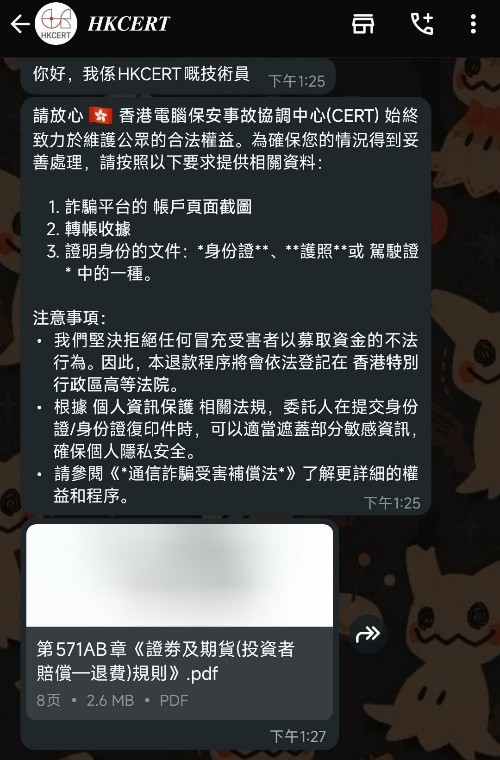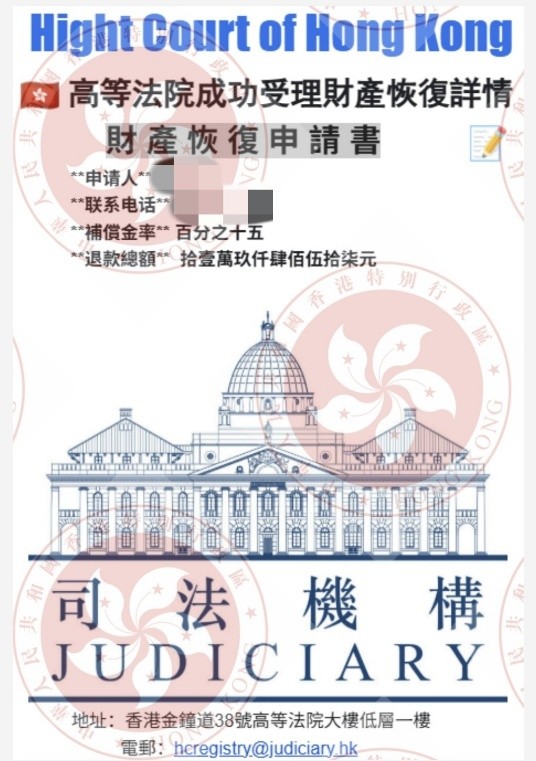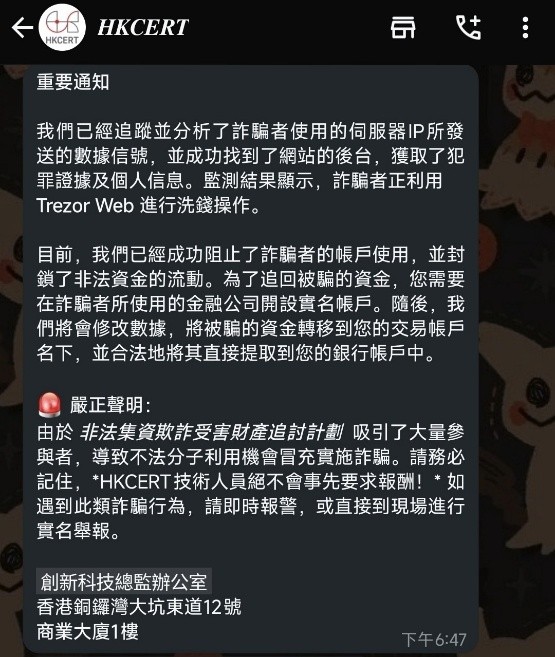-
Our Services
- AI with HKPC PICASSO
- The Cradle – Go Global Service Centre
-
New Industrialisation
- New Industrialisation
- New Productive Forces Service Platform
- Smart Production Line
- Innovation Technology and R&D
- Transformation and Upgrading
- Nurture New Industrialisation Talent
- Rules and Regulations
-
HealthTech and Traditional Chinese Medicine
- HealthTech and Traditional Chinese Medicine
- R&D service and Functional Investigation on Chinese Medicine, Health Food & Wellness product
- Compliance Consultation Service for Chinese Medicine, Pharmaceutical, Health Food and Medical Device Industries
- Manufacturing Enhancement - Automatic Intelligent System for Production and Packaging in Chinese Medicine, Pharmaceutical and Health Food Industries
- Assisting funding application for local medicine and health industrial associations
- “The Cradle” Services for Health Tech and TCM Industry
-
Smart Manufacturing
- Smart Manufacturing
-
IIOT
- IIOT
- Industrie 4.0 - Smart Enterprise
- Product Lifecycle Management Consultancy
- Intelligent Automatic Warehousing and Logistics
- Real-Time Manufacturing Tracking System
- Knowledge Based Engineering & CAD Solution
- Location Based Services and Location Analytics
- The HATCH
- Hong Kong Industrial Drone Technology Centre
- Novel Materials
-
Advanced Manufacturing Technology
- Advanced Manufacturing Technology
- 3D Scanning and Reverse Engineering Service
- Flexible Metallic Fiber Physical Porous Part Fabrication Technology
- Advanced Mould Cooling Technology and CAE Conformal Cooling Analysis
- Gas Atomisation Technology
- Dual Laser Metal Polishing Technology
- Advanced Additive Manufacturing, 3D Printing Technology, and Direct Manufacturing
- Diffusion Bonding Technology
- Electrically-Assisted Free Forming (EAFF) Technology for Customisation of Sheet Metal Parts
- Plastic Process and Machinery Technology
- Fashion and Garment Technology
- Computer Aided Technology (CAx)
- Watch Assembly Automation Technology
-
Digital Transformation
- Digital Transformation
- HKPC Digital DIY Portal
- Digital Transformation Support
- Intelligent Integrated Non-wearable and Wearable Health Monitoring System and App for Elderly Homes
- 「FitEasy」Virtual Fitting Technology - For People with Disability
- Smart Solution
- Research and Analytics
- Strategic IT Management
- Embedded Software System
- New Media and Learning Technology Development
- IT Industry Support
- DevOps Maturity Assessment and Consultancy Service
- Software Testing Automation Consultancy Service
- Blockchain Consulting Service
- Extended Reality (XR) technology and consultancy service
-
Cyber Security
- Cyber Security
- Cyber Security
- Cybers Security-by-design, Privacy and Compliance-by-default
- Design & Architecture
- Train & Develop
- Offensive Security
- Intelligent Security
- Defensive Security
- Intelligent Hardening
- Internet of Things (IoT) & Operational Technology (OT) Cyber Security Testing
- Phishing Defence Services
- Cyber Security Assessment & Audit
- Cyber Security Consultancy for i4.0 & e4.0
-
Green & Smart Living
- Green & Smart Living
- Green Technology
- Food Technology
- Smart Living
-
Corporate Sustainability
- Corporate Sustainability
- ESG and Sustainability Services
- Manufacturing Technology (Tooling, Metals & Plastics) Recognition of Prior Learning (RPL) Mechanism
- Market Research and Analytics
- Business Innovation
- Sustainability-related standards and guidance
- Organisation Innovation Capability Development
- District Innovation
- Customer Service Assessment
- Intellectual Property (IP) Protection and Management
- Support to Creative Industries
- Manufacturing Standards Consultancy Service
- Production Capacity Optimisation
- Cost of Quality
- HKPC Academy
- SME Support
- Funding
- Testing & Standards
- Venues & Facilities
-
Support & Resource
- Technology Transfer
-
Support Centres
- Support Centres
- Low-altitude Economy Tech Hall
- The Cradle – Go Global Service Centre
- Agentic AI and Industrial Metaverse Hall
- HKPC-HP 3D Printing Technology Centre
- Future Manufacturing Hall
- Hong Kong Technology and Innovation Support Centre
- Inno Space
- The HATCH
- Advanced Electronics Processing Technology Centre
- Green Living Laboratory
- Reliability Testing Centre
- Electromagnetic Compatibility Centre
- Plastics Technology Centre
- Smart Wearables, Watch & Clock Technology Centre
- Conformal Cooling Technology Centre
- Hong Kong Digital Testing Hub
- Hong Kong Industrial Drone Technology Centre
- Aqua Research Laboratory
- Advanced Materials and Intelligent Manufacturing Centre
- Hong Kong Joint Research Lab for Applications of Intelligent Automation Technology
- Future FoodTech Lab
- HKUST-HKPC Joint Research Lab for Industrial AI and Robotics
- Hong Kong Industrial Artificial Intelligence & Robotics Centre (FLAIR)
- Testing & Standards
- HKPC Spotlights
- About US
-
 LANGUAGE
LANGUAGE
HealthTech and Traditional Chinese Medicine
- R&D service and Functional Investigation on Chinese Medicine, Health Food & Wellness product
- Compliance Consultation Service for Chinese Medicine, Pharmaceutical, Health Food and Medical Device Industries
- Manufacturing Enhancement - Automatic Intelligent System for Production and Packaging in Chinese Medicine, Pharmaceutical and Health Food Industries
- Assisting funding application for local medicine and health industrial associations
- “The Cradle” Services for Health Tech and TCM Industry
IIOT
- Industrie 4.0 - Smart Enterprise
- Product Lifecycle Management Consultancy
- Intelligent Automatic Warehousing and Logistics
- Real-Time Manufacturing Tracking System
- Knowledge Based Engineering & CAD Solution
- Location Based Services and Location Analytics
- The HATCH
- Hong Kong Industrial Drone Technology Centre
Advanced Manufacturing Technology
- 3D Scanning and Reverse Engineering Service
- Flexible Metallic Fiber Physical Porous Part Fabrication Technology
- Advanced Mould Cooling Technology and CAE Conformal Cooling Analysis
- Gas Atomisation Technology
- Dual Laser Metal Polishing Technology
- Advanced Additive Manufacturing, 3D Printing Technology, and Direct Manufacturing
- Diffusion Bonding Technology
- Electrically-Assisted Free Forming (EAFF) Technology for Customisation of Sheet Metal Parts
- Plastic Process and Machinery Technology
- Fashion and Garment Technology
- Computer Aided Technology (CAx)
- Watch Assembly Automation Technology
Digital Transformation
- HKPC Digital DIY Portal
- Digital Transformation Support
- Intelligent Integrated Non-wearable and Wearable Health Monitoring System and App for Elderly Homes
- 「FitEasy」Virtual Fitting Technology - For People with Disability
- Smart Solution
- Research and Analytics
- Strategic IT Management
- Embedded Software System
- New Media and Learning Technology Development
- IT Industry Support
- DevOps Maturity Assessment and Consultancy Service
- Software Testing Automation Consultancy Service
- Blockchain Consulting Service
- Extended Reality (XR) technology and consultancy service
Cyber Security
- Cyber Security
- Cybers Security-by-design, Privacy and Compliance-by-default
- Design & Architecture
- Train & Develop
- Offensive Security
- Intelligent Security
- Defensive Security
- Intelligent Hardening
- Internet of Things (IoT) & Operational Technology (OT) Cyber Security Testing
- Phishing Defence Services
- Cyber Security Assessment & Audit
- Cyber Security Consultancy for i4.0 & e4.0
Corporate Sustainability
- ESG and Sustainability Services
- Manufacturing Technology (Tooling, Metals & Plastics) Recognition of Prior Learning (RPL) Mechanism
- Market Research and Analytics
- Business Innovation
- Sustainability-related standards and guidance
- Organisation Innovation Capability Development
- District Innovation
- Customer Service Assessment
- Intellectual Property (IP) Protection and Management
- Support to Creative Industries
- Manufacturing Standards Consultancy Service
- Production Capacity Optimisation
- Cost of Quality
Support Centres
- Low-altitude Economy Tech Hall
- The Cradle – Go Global Service Centre
- Agentic AI and Industrial Metaverse Hall
- HKPC-HP 3D Printing Technology Centre
- Future Manufacturing Hall
- Hong Kong Technology and Innovation Support Centre
- Inno Space
- The HATCH
- Advanced Electronics Processing Technology Centre
- Green Living Laboratory
- Reliability Testing Centre
- Electromagnetic Compatibility Centre
- Plastics Technology Centre
- Smart Wearables, Watch & Clock Technology Centre
- Conformal Cooling Technology Centre
- Hong Kong Digital Testing Hub
- Hong Kong Industrial Drone Technology Centre
- Aqua Research Laboratory
- Advanced Materials and Intelligent Manufacturing Centre
- Hong Kong Joint Research Lab for Applications of Intelligent Automation Technology
- Future FoodTech Lab
- HKUST-HKPC Joint Research Lab for Industrial AI and Robotics
- Hong Kong Industrial Artificial Intelligence & Robotics Centre (FLAIR)
HKCERT Urges Public to Remain Vigilant Against Recovery Scams Impersonating HKCERT
(Hong Kong, 27 May 2025) HKCERT has identified a recent trend of criminals impersonating our organisation to commit recovery scam. These scammers proactively contact previous fraud victims, falsely claiming they can help trace stolen funds, where their true intention is to defraud the victims again. HKCERT urges the public to remain vigilant against anyone claiming to be able to recover stolen funds.
What is a Recovery Scam?
In the past, scammers have impersonated authoritative organisations such as the Hong Kong Police Force, Anti-Deception Coordination Centre, and law firms to conduct recovery scams. Scammers typically contact previous victims through social media platforms such as Facebook, WhatsApp, and Telegram, claiming they have traced or would be able to recover stolen funds.
In some cases, scammers target victims’ personal information, bank account details and passwords to gain unauthorised access to bank accounts. In other cases, the scammers may request a guarantee or application fee. Due to the sunk cost fallacy, victims may be willing to pay these fees in hope of recovering their previous loss.
Recent Cases
HKCERT has recently identified a new type of recovery scam where scammers obtained a list of previous scam victims, including names, phone numbers and amount of financial loss. First, the scammer (Scammer-A) contacts a previous victim through WhatsApp, claiming to be a fellow scam victim, who is gathering other scam victims to collectively seek assistance. Scammer-A establishes credibility by accurately providing the victim’s personal information and financial loss. After a few days, Scammer-A claims to have found a method to track stolen funds and invites the victim to a WhatsApp group, disguised as a legitimate “Scam Asset Recovery Program”. Another scammer in the WhatsApp group (Scammer-B), who impersonates a technical expert from HKCERT appointed by Hong Kong Monetary Authority, claims to be able to recover the stolen funds.

Scammer-B requests copies of their identification documents of the victim, such as HKID card, passport or driver’s license. Subsequently, they provide a counterfeit “Certificate of Asset Recovery” issued from “Hight Court of Hong Kong” (misspelling of “High Court of Hong Kong”).

Scammer-B then claimed to have tracked the stolen funds, along with crime evidence, identity of the “original scammer” and associated IP address. The victim is instructed to create a bank account on a specific web platform allegedly used by the “original scammer” for money laundering, supposedly to facilitate fund recovery.

Based on past recovery scam patterns, the account creation process likely requires additional personal information from the victim that could be used for blackmail or future scams. Victims may also be asked to pay guarantee, application, or processing fees to retrieve the “recovered funds”.
HKCERT has immediately reported the fraudulent account and this incident to the operator of the instant messaging platform, but we anticipate scammers will continue to develop new deceptive methods. To protect yourself from these fraudulent activities, HKCERT recommends the public to take the following security measures:
- Do not trust anyone who claims to be able to recover stolen funds. Visit a police station to report your case and seek legitimate assistance.
- Stay vigilant of all suspicious payment requests, emails, or text messages. If in doubt, verify directly through official channels. For example, contact hkcert@hkcert.org to confirm the identity of anyone claiming to representing HKCERT.
- Use “CyberDefender” to identify fraud and cyber traps by checking email addresses, URLs, and IP addresses, or call the Hong Kong Police Force Anti-Deception Coordination Centre “Anti-Scam Helpline 18222” for assistance.
- Enhance your cyber security awareness and stay informed about new fraudulent tactics and preventive measures.
- Ends -
Share the latest information of HKPC to your inbox
Our Services
Support & Resource
HKPC Spotlights
COPYRIGHT© Hong Kong Productivity Council
